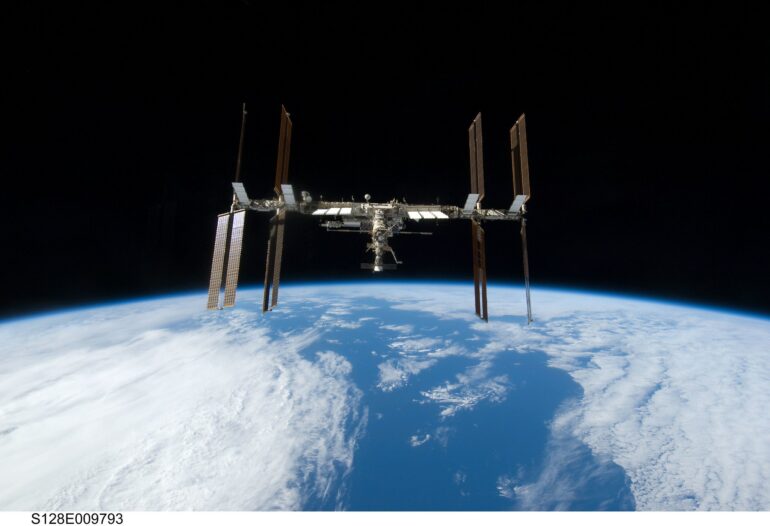New U.S. sanctions on Russia will encompass Russia’s space agency, Roscosmos, according to a speech U.S. President Joe Biden gave on Feb. 24, 2022.
In response to these sanctions, the head of Roscosmos on the same day posted a tweet saying, among other things, “If you block cooperation with us, who will save the ISS from an uncontrolled deorbit and fall into the United States or Europe?”
The International Space Station has often stayed above the fray of geopolitics. That position is under threat.
Built and run by the U.S., Russia, Europe, Japan and Canada, the ISS has shown how countries can cooperate on major projects in space. The station has been continuously occupied for over 20 years and has hosted more than 250 people from 19 countries.
As a space policy expert, the ISS represents, to me, a high point of cooperation in space exploration. But for the current crew of two Russians, four Americans and one German, things may be getting worrisome as tensions rise between the U.S. and Russia.
Several agreements and systems are in place to make sure that the space station can function smoothly while being run by five different space agencies. As of Feb. 24, there were no announcements of unusual actions aboard the station despite the ongoing Russian invasion of Ukraine. But the Russian government has brought the ISS into geopolitics before and is doing so again.
Managing the ISS
What came to be known as the International Space Station was first conceived on NASA drawing boards in the early 1980s. As costs rose past initial estimates, NASA officials invited international partners from the European Space Agency, Canada and Japan to join the project.
When the Soviet Union collapsed at the end of the Cold War in the early 1990s, the Russian space program found itself in dire straits, suffering from lack of funding and an exodus of engineers and program officials. To take advantage of Russian expertise in space stations and foster post-Cold War cooperation, the NASA administrator at the time, Dan Goldin, convinced the Clinton administration to bring Russia into the program that was rechristened the International Space Station.
By 1998, just prior to the launch of the first modules, Russia, the U.S. and the other international partners of the ISS entered into memorandums of understanding that spelled out how major decisions would be made and what kind of control each nation would have over various parts of the station.
The body that governs the operation of the space station is the Multilateral Coordination Board. This board has representatives from each of the space agencies involved in the ISS and is chaired by the U.S. The board operates by consensus in making decisions on things like a code of conduct for ISS crews.
Even among international partners who want to work together, consensus is not always possible. If this happens, either the chair of the board can make decisions on how to move forward or the issue can be…
